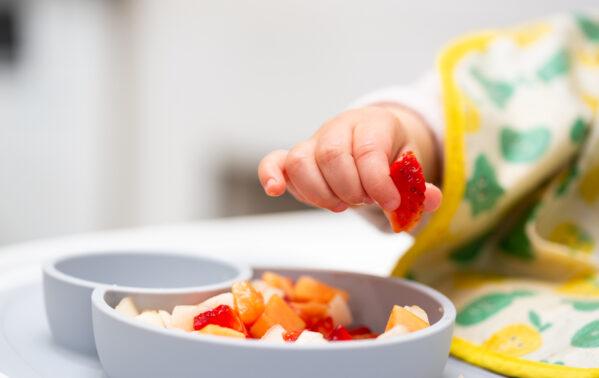Healthy Eating Starts Young! Try Building These Habits With Children
We all know healthy eating is important, but let’s be honest—getting children to eat nutritious foods can sometimes be challenging! Sometimes parents feel frustrated or guilty if their child pushes away the fruits and veggies, but so-called “picky eating” is an expected part of childhood.

So if your little one is pushing away the bananas and broccoli, are there still ways to build healthy eating habits? Yes! And doing so could help children make smarter eating decisions in the future!
Here are some ways to start building healthy eating habits for your children.
Introduce your child to nutritious foods as early as possible.
None of us can remember what we ate as a baby, but introducing nutrient-rich foods from a young age can help build healthy eating habits. Consider starting out your little one with some of these superfoods!
Aim for “balanced” meals.
Most people like a variety of foods at meal time! Serve children a balanced meal, so they get protein, fiber, carbohydrates, healthy fat and other vitamins and minerals they need. Some tips for building a “balanced” meal:

Some of the plate is “colorful”. This means either a fruit and/or vegetable.
Try incorporating whole grains and healthy proteins. Whole grains include brown rice, quinoa, whole wheat bread, and whole grain pasta. Healthy proteins include beans, nuts, seeds, fish, eggs, and poultry.
Remember to consider only age-appropriate foods for baby. Find more about the age-appropriate foods by checking out our Feeding Checklist.
Try incorporating nutritious foods a little at a time.
If you add a few berries next to their chicken nuggets, or mix in some peas with their macaroni and cheese, they’ll begin to think of these foods as a part of the meal! Even if you little one doesn’t eat some of the food presented right away, continue to put these foods on their plate once every few days. You may see your child begin to feel more comfortable with these new foods as they touch, smell, or even mush them with their fingers. These are all great opportunities to increase the types of foods they will eat.
Encourage children to eat nutritious foods, but don’t shame foods that may not be as nutritious.
Not everything we eat is going to be full of nutrients—and that’s ok! It’s important that children do not feel ashamed about enjoying all foods. Try to be aware of the language used when talking about foods. We want to avoid labeling foods as “good” or “bad”. Instead, try talking about the characteristics of the food, such as “Listen to how loud my carrot crunches”.
Eat together as a family.
There are so many benefits to family meals! If children see their family eating well together, that will reinforce healthy habits. Try to create a calm and fun atmosphere, so the family looks forward to meals. One great way to do this? Try dinner table games!
 Serve foods with healthy drinks.
Serve foods with healthy drinks.
Choose drinks that are low in sugar. Water should go with every meal so children stay hydrated. Milk is always a great source of vitamin D and calcium. Follow your pediatrician’s guidelines for how much milk is recommended per day for your child.
Allow children to decide when they are “full.”
This is an important interoceptive skill. It also helps children to know their boundaries with food. If your child doesn’t eat very much at a meal, they will likely be hungry for the next meal. If they don’t appear to be eating enough for several days in a row, contact a healthcare provider to see what suggestions might be offered.
Set a meal routine.
We all know the feeling of being so hungry that we eat whatever we can get our hands on—and usually a lot of it! Eating at relatively the same time each day will help with managing feelings of hunger, and making smart decisions about what to eat. Try to have a routine snack time of day too (usually around mid-afternoon). Avoid letting your child graze on snacks throughout the day, as this may impact their ability to feel hungry and eat an age-appropriate amount of food at mealtimes. Routines also help executive function skills!
Teach children about nutrition.
The more they know, the more they will want to make healthy choices! Take them with to the grocery store or a farmer’s market so they can see the variety of foods out there. Help them learn the difference between grains, proteins, fruits and vegetables. Have them help out with cooking and preparing meals in the kitchen. Growing a garden with your child can also teach them about healthy, nutritious food.





